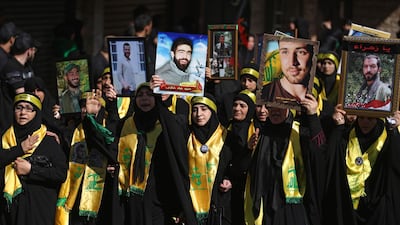As far as declarations go, the latest by Iraqi Prime Minister Adel Abdul Mahdi could hardly have been more ineffective.
On Tuesday, hours after Mr Abdul Mahdi announced he was banning the use of Iraq as a military theatre for Iran backed-paramilitaries, rockets struck an ExxonMobil facility in the south and a northern base housing US troops.
No one claimed responsibility but the United States had blamed a similar attack last month in Baghdad on Iran and sent another 1,000 troops to the Middle East in response to what it termed as escalatory moves by Tehran across the region. Last year, Washington pulled out of the 2015 nuclear deal and expanded sanctions that contributed to steep economic retreat in Iran.
Mr Abdul Mahdi had pledged Iraqi neutrality and aside from the political embarrassment, the attacks further exposed the vulnerability of the sectarian political system unable to deal with societal fissures and outside pressures.
Despite the scars of Saddam Hussein’s oppression of Iraq’s Shiite majority and the Kurds, many have warned that the system developed since his downfall in 2003 is along lines that echo a divided Lebanon, where the militia power of Hezbollah manifests into huge political influence.
Lebanese political commentators sometimes attribute their country’s ills to the “Iraqisation of Lebanon” but, whichever came first, both systems foster sectarianism and corruption, snuff out merit and are beholden to Iranian-backed non-state actors sometimes determining the course of events for the entire country.
In Lebanon, power shifted from Christian factions to the Shiite Hezbollah, backed by Tehran and Damascus, and the Amal Movement after the 1990 Taif agreement that ended the 15-year civil war. In Iraq, the political ascendency of the Shiite blocs to some mirrored human rights abuses by Saddam and were compounded by a plethora of Iranian-backed Shiite militias.
“I look at these militiamen turned politicians who rule us and say what difference are you to Saddam,” said a female Shiite journalist in Baghdad, who declined to be identified.
Lebanese political commentator Samir Atallah said the late Palestinian leader Yasser Arafat warned during the Lebanese civil war about the “Balkanisation” of the Middle East. The irony seems to have been lost on Arafat as Palestinian guerrillas, who were party to a relatively brief civil war in Jordan, gave little attention to an armistice between Lebanon and Israel.
Their attacks on Israel, without the consent of the Lebanese government and large segments of the population, contributed significantly to the civil war.
"The problem is that these terms, while indicative of a historical malaise, propagate," Mr Atallah wrote in the Al Sharq Al Awsat newspaper this week. For all practical purposes, Iran had managed to "invade" Iraq through its militia loyalists, he said.
Few in Iraq dare to criticise the militias publicly, and those who speak out do so from the relative safety of Iraqi Kurdistan. Many of the militias were formed in 2012-2014 to fight ISIS or as foot soldiers in the Iranian drive to back the Bashar Al Assad regime in Syria. Most of the main militias are grouped into the Popular Mobilisation Forces, known as the Hashd, which has the loyalty of a large parliamentary bloc, similar to Hezbollah in Lebanon.
While some militias could balance their domestic constituencies with their alliance with Tehran, the more ideologically-driven militias may not heed popular sentiment that appears to favour avoiding US retaliatory strikes.
Iraqi parliamentarian Jaber Al Jaberi said while the government coordinates with the Hashd he is more concerned about smaller Iranian-backed militias outside the grouping.
"The government has no control whatsoever over these militias," Mr Al Jaberi told The National from Baghdad. "I hope they don't transform any battle into Iraq and we become a punching bag for Iran or America."
Many of the Iraqi militias have close links with Hezbollah, such as Hezbollah Al Nujaba, which is seen as among the most ideological and sectarian-driven Hashd militias. The group's head Akram Al Kaabi had made several publicised trips to Lebanon and regards his group as part of the "axis of resistance" against the United States and Israel, but his group has fought mostly Sunni rebels in Syria.
In Lebanon, Hezbollah’s Shiite base could incur large casualties if Hezbollah draws Lebanon into another war with Israel, as the group did in 2006. Hezbollah repeatedly said it would not shy away from supporting Iran in any confrontation with the United States.
Hezbollah abducted Israeli soldiers in 2006 in a unilateral operation inside Israel that ignited a war, six years after the Israeli withdrawal from south Lebanon.
Hezbollah critics said the operation was partly aimed at deflecting from the assassination a year earlier of former Lebanese prime minister Rafik Hariri, who was loathed in Tehran and Damascus. Hezbollah said the attack across UN border demarcation lines was designed to free Lebanese prisoners in Israel.
A few dared publicly criticise the Hezbollah action at the time and some of the most prominent Lebanese who did were forced to flee the country, fearing for their lives from the group's retribution. Last year, ordinary Shiites living in Hezbollah strongholds in south Beirut, who had criticised the group in television interviews over casualties incurred by its involvement in Syria, were forced to recant.
When armed to the teeth and the state is weak, domestic opinion is of little significance.


